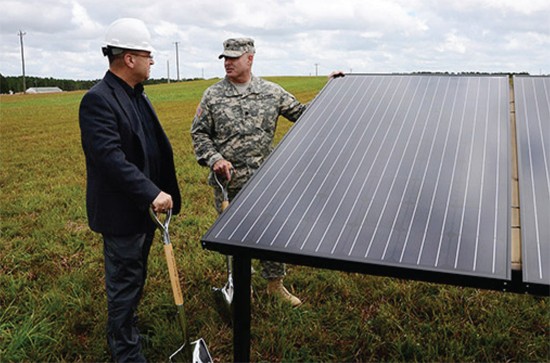Greenvestment Center States Leading the Charge Toward a New Energy Economy
Post on: 16 Март, 2015 No Comment

States Leading the Charge: Toward a New Energy Economy
By Lauren Morrell
Bill Ritter’s 2007 run for Governor of Colorado was distinguished by the conversation he created around the potential he believed Colorado has to develop a new, clean energy economy. Ritter served for
four years as Governor of Colorado, signed 57 bills advancing a clean energy agenda, and delivered a keynote presentation at the 25th annual SRI Conference .
Following his gubernatorial stint, Ritter became the director of the Center for the New Energy Economy at Colorado State University, a non-academic center focusing on energy policy and research at the state level. He believes that in light of the stalemates in Congress over climate change and related energy policy progress, it will be state governments taking the lead on clean energy with a focus on emissions, renewable energy development, and transportation.
The White House invited the Center for the New Energy Economy (CNEE) to participate in research on five energy issues: energy efficiency, renewable energy, alternative fuels for vehicles, business models for utilities, and rule-making on natural gas. In response, the CNEE team submitted 200 recommendations, in a document called “Powering Forward .” They were hoping to answer the question: What can the Federal Government do to advance American energy policy without the support of Congress?
After witnessing her father testifying before a congressional committee in January, 2014, Ritter’s daughter remarked, “The whole thing was just awful… there is no search for resolution. This is in dramatic contrast to the way the Powering Forward project has operated, bringing the private sector, academic experts, nongovernmental organizations, and environmental agencies, democrats and republicans to the same table in a search for common ground in the realm of energy policy. “We know it’s not the optimum thing [to move without Congress], but…” Ritter acknowledged.
According to Ritter, the potential for progress on a clean energy agenda will come from the state governments. Thirty states with some 240 million American citizens have a renewable energy portfolio standard, energy efficiency resource standard, and continue to make progress. Many of these are considered “blue states,” but a surprising number are not.
Ritter cited Governors Mead of Wyoming, Snyder of Michigan, and Sandeval of Nevada—all Republicans who have begun to push clean energy agendas in their respective states. “Recently, more republicans are talking differently about energy than they did four years ago,” Ritter claimed. And voters in these states don’t disagree. According to polls from Colorado College, voters support the EPA having authority over greenhouse gases and want solar and wind on the grid.

To open opportunities for clean energy investment, Ritter talked about the “braided twine” of policy, technology, and finance. He argues for a price on carbon and the alleviation of taxes on production: “Rhode Island had more wind on the grid than Colorado, and with all due respect, they’re not even a decent sized ranch in this state!” he quipped.
With more and more small and local governments bringing clean energy to the agenda, the Federal government cannot ignore it much longer. Its really being baked from the bottom of the oven and is going to rise to the top where I believe the United States Congress is going to have to pay attention to this.” Ritter complimented President Obama on Amendment 111D to the Clean Air Act proposed by the EPA, calling it the “crown jewel” of the President’s climate plan.
China, India, and Europe have all taken their own action following the announcement of 111D. “This is a global conversation,” Ritter concluded, encouraging the participation of every voter. “Impact is far beyond investing in technologies in the U.S… if we invest in policy or technology we have the ability to lead the world… but we also have an economic opportunity [of greater than $1 trillion] that we can capture and compete with the rest of the world.”
At First Affirmative , we understand that the ways we save, spend, and invest can dramatically influence both the fabric and consciousness of society. We believe that in addition to the benefits of ownership, investors bear responsibility for the impact our money has in the world. Are you making conscious decisions about the impact of your consumer purchase and investment decisions?
Mention of specific companies or securities should not be considered an endorsement or a recommendation to buy or sell that security. Past performance is no guarantee of future results.














